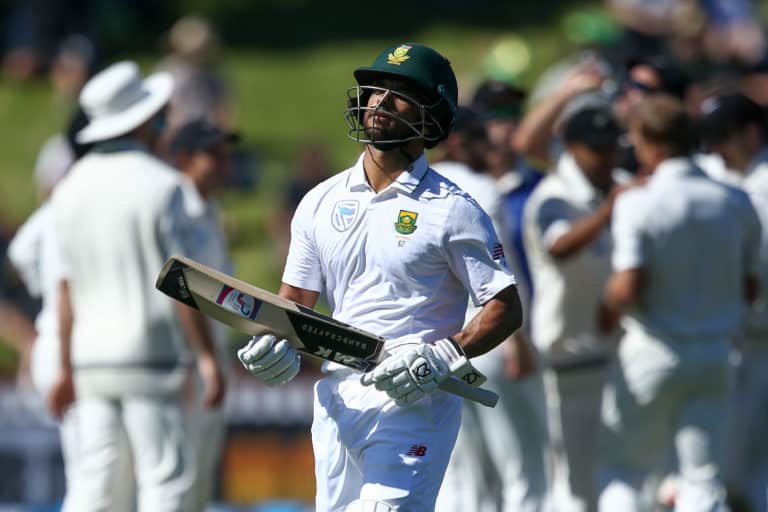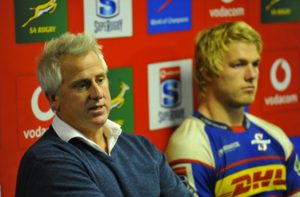A dearth of substantial top-order partnerships continues to limit the Proteas’ potency, writes JON CARDINELLI.
Sometimes when you win, you lose. Indeed, while the Proteas did enough to win the recent Test series against New Zealand, they failed to find solutions to batting problems that have hampered them for the better part of two years.
Following the draw in Hamilton, captain Faf du Plessis admitted that the Proteas had not played particularly well over the three Tests. They’ve beaten New Zealand in South Africa, Australia in Australia, Sri Lanka in South Africa, and most recently New Zealand in New Zealand. Yet there is no reason to feel overly confident ahead of the big series against England later this year.
ALSO READ: Proteas win series as rain forces draw
In the wake of the first Test against New Zealand in Dunedin, I wrote that this team was living dangerously by relying on Du Plessis and opening batsman Dean Elgar to score the bulk of the runs. At that point, Du Plessis and Elgar had scored nearly 30% of the team’s runs in 2016/17.
The series against New Zealand is now a thing of the past, and unfortunately the stats show that not much has changed. Elgar scored the most runs for South Africa (265 at 44.16) and Du Plessis the third-most (198 at 66).
Quinton de Kock made 210 runs at 52.50. He got South Africa out of jail on more than one occasion. That said, the heroic efforts of the Proteas No 7 shouldn’t distract anyone from the fact that the misfiring top order is placing the rest of the team under pressure.
How do the Proteas go about addressing these problems? It’s not as simple as making one change. Three of the top six are horribly out of form, and as seen by Theunis de Bruyn’s forgettable debut in Hamilton, the elevation of an inexperienced player will always present a risk.
The blame should not be laid at De Bruyn’s door, though. The fault lies with Stephen Cook (17 runs at an average of 4.25), Hashim Amla (153 at 30.60), and JP Duminy (104 at 20.80). Elgar and Du Plessis, who did make some important individual contributions, should also take responsibility for the collective failure of the top order.
The numbers don’t make for pleasant reading. The top six batsmen were involved in 31 partnerships (before the fall of the fifth wicket) over the three Tests against New Zealand. Only six of those partnerships yielded 50 runs or more, and only two of those were stands of 100-plus.
The real problem is at the top. The Proteas averaged 9.83 for the first wicket and 15 for the second. Taking all first-, second-, and third-wicket partnerships in the series into account, there were only two half-century stands in 17 innings. And the chief culprits in those instances? Cook, Amla, and Duminy.
Russell Domingo and batting coach Neil McKenzie have their work cut out for them ahead of the four-Test series against England. A player like Amla will be especially important in those conditions. South Africa need their premier batsman – unless AB de Villiers returns – to bounce back soon.
New Zealand don’t possess a world-class bowling unit. And yet, the Kiwis managed to rattle the South African batting line-up consistently, even when the likes of Trent Boult and Tim Southee were unavailable.
South Africa’s top seven (including De Kock) were guilty of poor shot selection at times. The chief mode of dismissal was caught behind (16 out of 34 dismissals). It’s also concerning to note that Elgar (four out of six) and Du Plessis (two out of three) perished in this fashion more often than not.
It’s plain to see that changes need to be made. What is also clear is that personnel changes won’t solve all of the Proteas’ problems, as their batting woes run deep.
Photo: Hagen Hopkins/Getty Images





